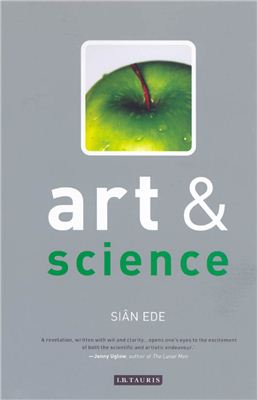I.B. Tauris, 2005. - 208 pages.
While demonstrating how science is affecting the creation and interpretation of contemporary art, this book proposes that artistic insights are as important on their own terms as those in science and that we can and should accommodate both forms of knowledge. Featuring the work of artists such as Damien Hirst, Christine Borland, Bill Viola and Helen Chadwick, and art-science collaborative ventures involving Dorothy Cross, Eduardo Kac and Stelarc, it looks at the way new scientific explanations for the nature of human consciousness can influence our interpretation of art, at the squeamish interventions being produced by artists relishing in new technologies and at art which takes on the dangers facing the fragile environment. Seeing the world from the other point of view can inform the practice of both sides - this book will provide new insights to artists, scientists and the wider public.
While demonstrating how science is affecting the creation and interpretation of contemporary art, this book proposes that artistic insights are as important on their own terms as those in science and that we can and should accommodate both forms of knowledge. Featuring the work of artists such as Damien Hirst, Christine Borland, Bill Viola and Helen Chadwick, and art-science collaborative ventures involving Dorothy Cross, Eduardo Kac and Stelarc, it looks at the way new scientific explanations for the nature of human consciousness can influence our interpretation of art, at the squeamish interventions being produced by artists relishing in new technologies and at art which takes on the dangers facing the fragile environment. Seeing the world from the other point of view can inform the practice of both sides - this book will provide new insights to artists, scientists and the wider public.

